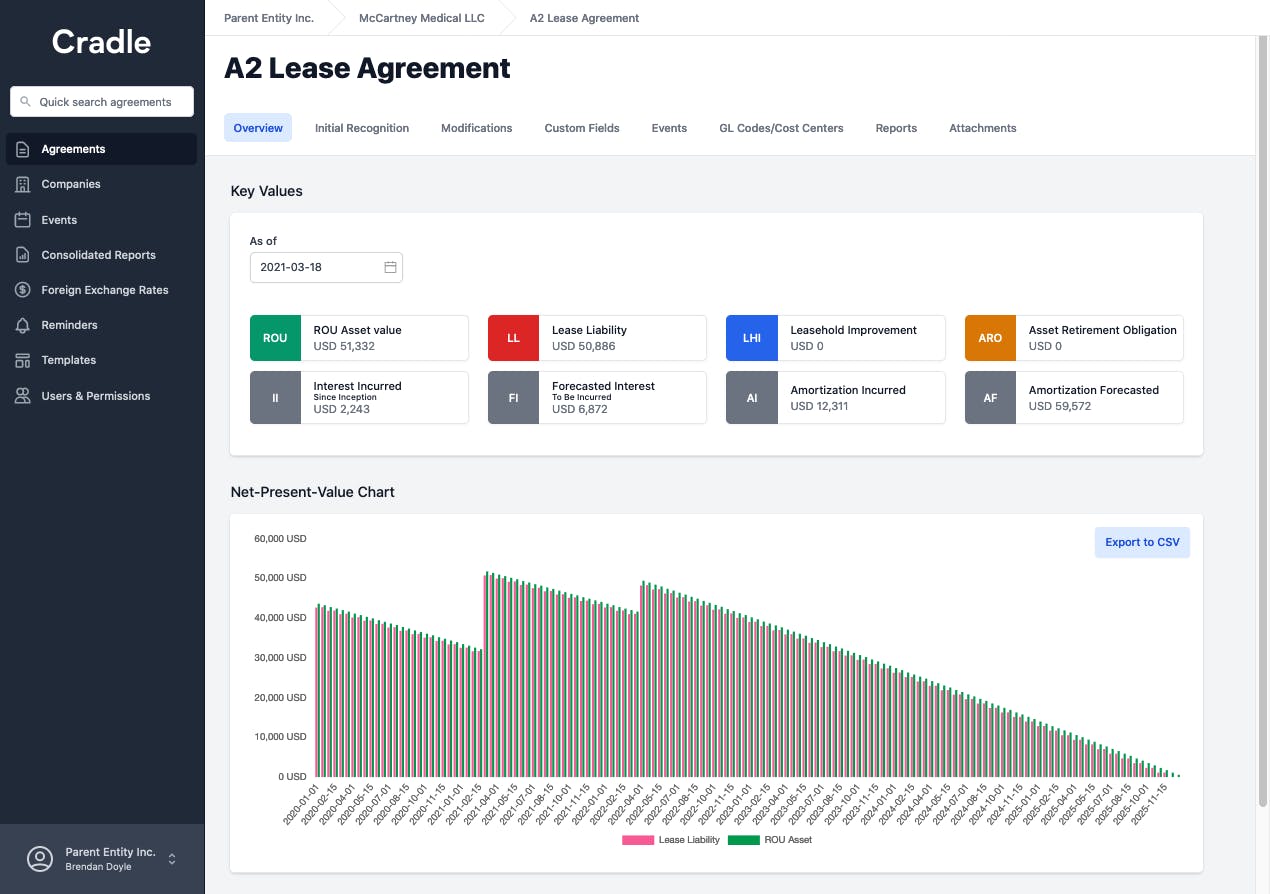What is the Commencement Date of a Lease Under ASC 842 and IFRS 16
Substance over form is a common phrase you’ll hear in accounting. It’s an accounting principle that is applied to all transactions. This accounting principle ensures that the accounting of a company reflects the overall economic substance of those transactions. The alternative to this would be accounting for the legal record/form of the transaction.
In other words, the transaction should not be an accountant in a way that does not reflect the actual intent of the party. In some circumstances, companies would prefer a particular accounting outcome and will try and structure the contract to suggest that outcome.
In many areas of accounting, judgment is required to determine the actual substance of the transaction. Lease accounting is no exception to this rule. The first area to address is to determine if the contract meets the definition of a lease. It could be entirely irrelevant that the agreement does not need to include the phrase “lease.” From an accounting perspective, the contract must only meet the definition required by the applicable lease accounting standard ASC 842 and IFRS 16
If you’re curious to what is the definition of a lease, refer to:
As you’ve probably already guessed, the principle of substance over form is applied when determining the commencement date of the lease. Depending on the facts and circumstances of the transaction, it could wildly differ from the start date of the lease noted in the contract.
The purpose of this article is to highlight the inputs used to determine the commencement date of a lease.

Lease commencement date definition under ASC 842
What the standard says
In the ASC 842 glossary, it defines the commencement date as:
The date on which a lessor makes an underlying asset available for use by a lessee. See paragraphs 842-10-55-19 through 55-21 for implementation guidance on the commencement date.
When determining the commencement date of the lease, these are the following extracts that will help in forming a conclusion:
842-10-55-19:
In some lease arrangements, the lessor may make the underlying asset available for use by the lessee (for example, the lessee may take possession of or be given control over the use of the underlying asset) before it begins operations or makes lease payments under the terms of the lease. During this period, the lessee has the right to use the underlying asset and does so for the purpose of constructing a lessee asset (for example, leasehold improvements).
842-10-55-20 :
The contract may require the lessee to make lease payments only after construction is completed and the lessee begins operations. Alternatively, some contracts require the lessee to make lease payments when it takes possession of or is given control over the use of the underlying asset. The timing of when lease payments begin under the contract does not affect the commencement date of the lease.
842-10-55-21:
Lease costs (or income) associated with building and ground leases incurred (earned) during and after a construction period are for the right to use the underlying asset during and after construction of a lessee asset. There is no distinction between the right to use an underlying asset during a construction period and the right to use that asset after the construction period. Therefore, lease costs (or income) associated with ground or building leases that are incurred (earned) during a construction period should be recognized by the lessee (or lessor) in accordance with the guidance in Subtopics 842-20 and 842-30, respectively. That guidance does not address whether a lessee that accounts for the sale or rental of real estate projects under Topic 970 should capitalize rental costs associated with ground and building leases.
What does the commencement date mean under ASC 842?
The gist of the above is that regardless that the lease commencement date may be defined in a lease agreement, the accounting assessment should be made on the date that the lessor makes the underlying asset available for use to the lessee.
Accordingly, when the lessor makes available the leased asset and the lessee can gain control, the right to use asset and lease liability is recognized. This could be before or after the defined start date in the lease agreement.
Commencement date example under ASC 842
Beatle Inc enters into a lease agreement with Who LLC to occupy 2 floors in their world-renowned millennium building located in New York City. As per the lease agreement, the start date of the lease is March 1, which is the exact date that the first payment for the month is due for $75,000.
Beatle Inc ensures their employees have many additional comforts while at work, ensuring they can access the building from January 1 to allow enough time to install their furniture and fittings.
What is the commencement date of the lease?
As per ASC 842, that date is when the lessor makes the asset available to the lessee. In this example, that date is January 1.
Lease commencement date definition under IFRS 16
IFRS 16 defines the commencement date of a lease as:
“The date on which a lessor makes an underlying asset available for use by a lessee.”
This follows the same principles as noted under ASC 842.
Commencement date example under IFRS 16
Dylan Inc. leases a retail store from Wonder LLC. The store is available from June 1.
Wonder LLC also provides three months rent-free as a lease incentive. Despite the store being available to Dylan from June 1, Dylan must ensure the retail store fits other stores' decor throughout the world. Dylan starts work on the design and branding from July 1, as that's the earliest date Dylan can procure contractors to begin the work. Dylan ends up opening on September 1.
What is the commencement date of the lease?
In this example, the commencement date of the lease is June 1. This is because Wonder made the underlying asset available for use to Dylan from that date onwards.
How the commencement date impacts lease accounting
Once the commencement date has been established from an accounting perspective, the lessee will then recognize the right of use asset and a lease liability on the balance sheet. This is likely to be a large number, so you can see that getting this date wrong can have a material impact on a company’s financial statements.
Once recognized, the lease liability will unwind to zero as each lease payment is made. The right of use asset will be amortized/depreciated to zero on a straight-line basis.
For more details on how to calculate the lease liability and right of use asset, refer to:
Conclusion
Determining the commencement date of the lease is a perfect example of substance over form. Lease contracts can get incredibly convoluted with terms such as early access period, commencement date, payment start date, and the list goes on. From an accounting perspective, it’s pretty simple. The commencement date is when the underlying asset is made available to the lessee.


